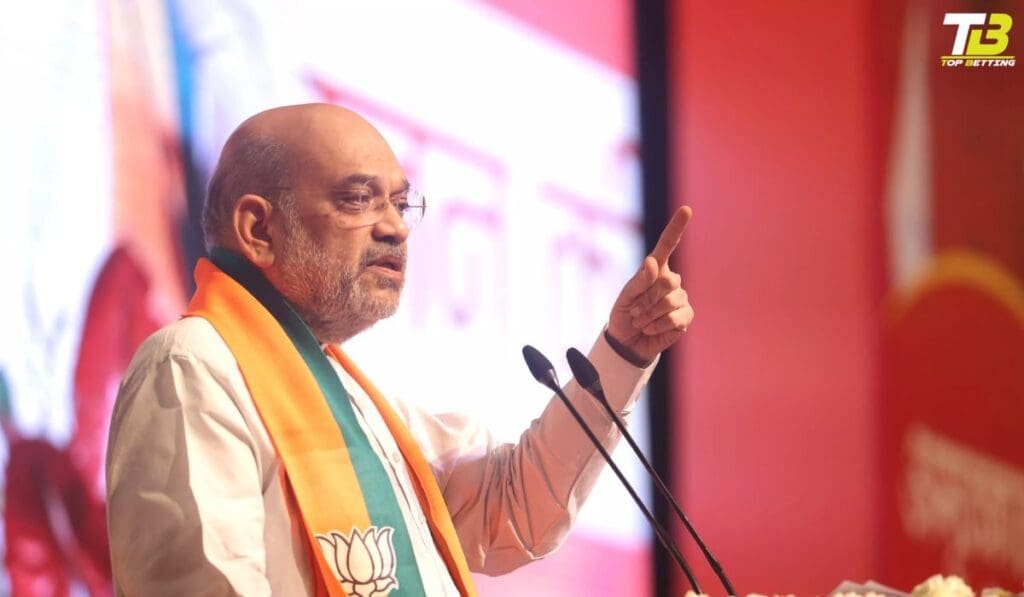
Casteism corruption eradicated by PM Modi | Amit Shah
Introduction
In the realm of Indian politics, a seismic shift has taken place over the past decade, spearheaded by Prime Minister Narendra Modi. He has emerged as a transformative leader, challenging the status quo and dismantling age-old practices that hindered the progress of the nation. Through his resolute determination, PM Modi has successfully put an end to the politics of casteism, corruption, appeasement, and dynasty. This article delves into the remarkable impact of PM Modi’s tenure, shedding light on the key milestones and the ideological battle that lies ahead.
The Reign of Casteism and Corruption
For years, Indian politics was marred by divisive tactics driven by caste-based considerations. The political landscape was fragmented, with parties exploiting caste identities to secure votes. However, PM Modi’s rise to power marked a turning point in this narrative. He recognized that the shackles of casteism had to be broken to forge a unified, inclusive India. Through his policies and governance, PM Modi has consistently focused on uplifting all sections of society, irrespective of their caste or creed.
Simultaneously, corruption had deeply permeated the political fabric of the nation. Nepotism and cronyism were rife, undermining the trust of the people in their elected representatives. PM Modi, known for his strong stance against corruption, embarked on a mission to cleanse the system. His government implemented robust measures to curb corruption and enhance transparency. Initiatives like demonetization and the implementation of Goods and Services Tax (GST) were instrumental in combating black money and ensuring a level playing field for all.
Challenging Appeasement Politics
Appeasement politics, which prioritizes the interests of specific communities over the collective welfare of the nation, had plagued the Indian political landscape. PM Modi recognized that this approach only perpetuated division and hindered progress. He championed the cause of equality and justice for all, disregarding the appeasement tactics employed by previous administrations.
PM Modi’s government embarked on a mission to empower marginalized communities, providing them with equal opportunities for growth and development. Initiatives like the Jan Dhan Yojana, which aimed to provide financial inclusion to the underprivileged, and the Beti Bachao Beti Padhao campaign, which aimed to address gender inequality, showcased the government’s commitment to creating a more inclusive society.
The Dynastic Quagmire
One of the most significant challenges confronting Indian democracy was the perpetuation of dynastic politics. The leadership of political parties was often determined by familial ties rather than meritocracy. PM Modi, himself hailing from a humble background, recognized the need to dismantle this dynastic quagmire and ensure that leadership positions were based on merit and competence.
Under PM Modi’s leadership, the Bharatiya Janata Party (BJP) embraced a culture of meritocracy, nurturing leaders who rose through the ranks based on their abilities and dedication to public service. This departure from dynastic politics has redefined the political landscape, offering hope to aspiring leaders who were previously overshadowed by family legacies.
The Ideological Battle
As PM Modi’s tenure progresses, the ideological battle intensifies. The upcoming Lok Sabha elections will serve as a defining moment for the nation. On one side stands the ideology of development, championed by PM Modi and his supporters. This ideology prioritizes the progress and well-being of the nation and its citizens, transcending narrow considerations.
On the other side lies the ideology that perpetuates dynastic politics and prioritizes personal interests over the welfare of the nation. This ideology thrives on divisive politics, caste-based appeasement, and corruption. The battle between these two ideologies is akin to the epic Mahabharata, where the forces of righteousness clash with those driven by self-interest.
PM Modi’s Vision of a Developed Nation
PM Modi’s vision for India extends beyond the eradication of casteism, corruption, appeasement, and dynasty. He envisions a developed nation that leverages its human capital, embraces innovation and technology, and creates opportunities for all. His policies, such as Make in India, Digital India, and Skill India, are aimed at transforming India into a global powerhouse.
Through his leadership, PM Modi has demonstrated a commitment to good governance, economic growth, and social empowerment. His focus on infrastructure development, access to healthcare, and the welfare of farmers has resonated with the masses, driving India towards a brighter future.

The Impact of PM Modi’s Tenure
PM Modi’s tenure has witnessed significant milestones that have reshaped the nation’s trajectory. His government’s efforts towards financial inclusion, rural electrification, and the implementation of social welfare schemes have touched the lives of millions. The Pradhan Mantri Jan Dhan Yojana, Ujjwala Yojana, and Swachh Bharat Abhiyan are testament to his commitment to uplifting the underprivileged.
Furthermore, PM Modi’s diplomatic initiatives have placed India on the global stage. His efforts to strengthen international partnerships, such as the Act East Policy and the International Solar Alliance, have garnered international recognition and positioned India as a key player in the global arena.
The Road Ahead
While significant progress has been made under PM Modi’s leadership, challenges still loom large. The battle against casteism, corruption, appeasement, and dynasty is ongoing, requiring continued vigilance and collective efforts. PM Modi’s vision for a developed India necessitates sustained dedication to economic growth, social empowerment, and inclusive governance.
As the nation stands at a crossroads, the upcoming Lok Sabha elections will determine the course of India’s future. It is imperative for the electorate to evaluate the competing ideologies and make an informed choice that aligns with the aspirations of a new India.

Conclusion
Prime Minister Narendra Modi’s tenure has left an indelible mark on Indian politics. By ending the politics of casteism, corruption, appeasement, and dynasty, PM Modi has ushered in a new era of governance focused on development, inclusivity, and meritocracy. The battle for the soul of India continues, with the upcoming elections serving as a crucible for the nation’s future. As India strives towards becoming a developed nation, PM Modi’s transformative leadership will continue to shape the destiny of a nation on the path to progress.











